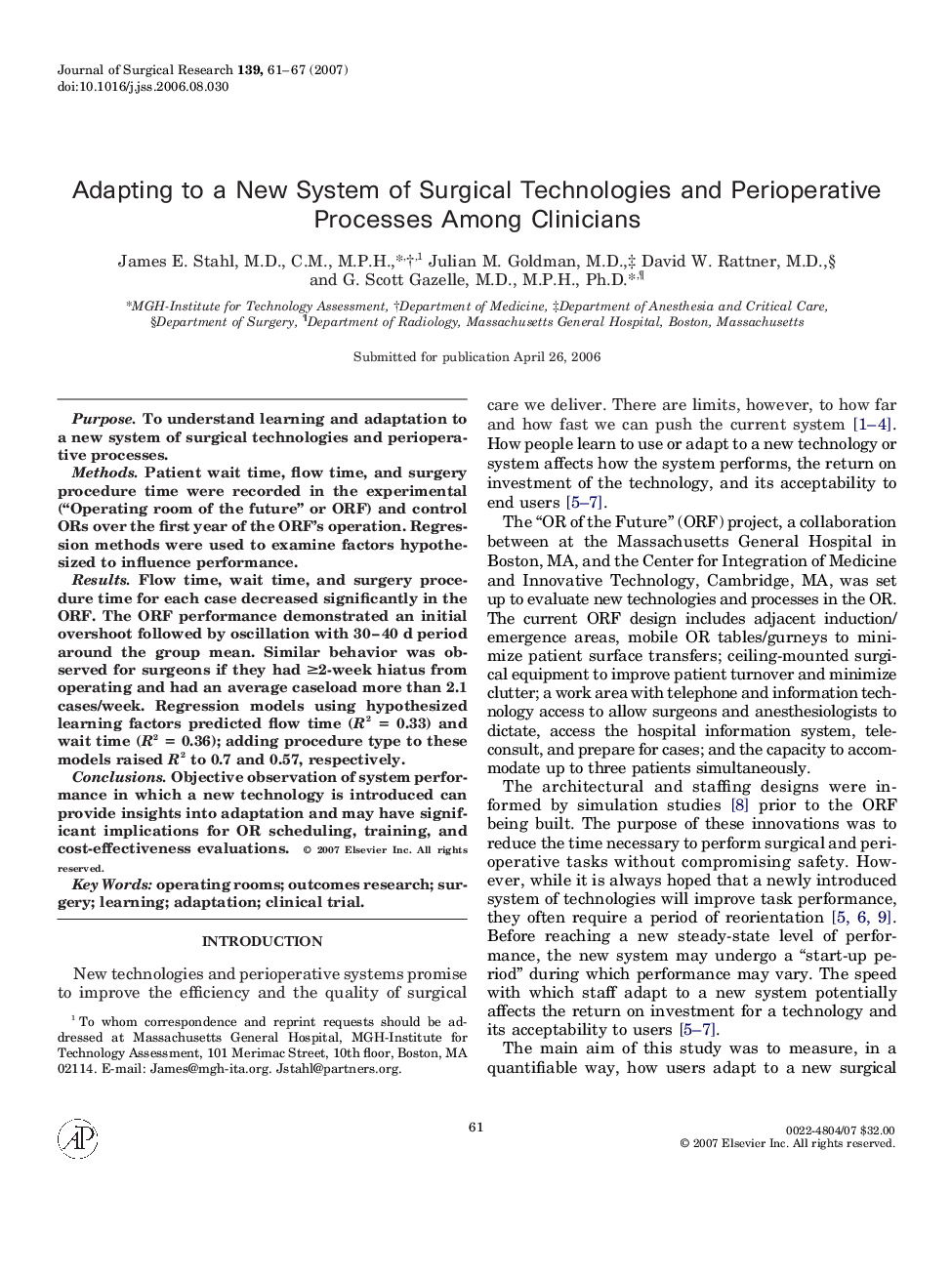| Article ID | Journal | Published Year | Pages | File Type |
|---|---|---|---|---|
| 4304991 | Journal of Surgical Research | 2007 | 7 Pages |
PurposeTo understand learning and adaptation to a new system of surgical technologies and perioperative processes.MethodsPatient wait time, flow time, and surgery procedure time were recorded in the experimental (“Operating room of the future” or ORF) and control ORs over the first year of the ORF’s operation. Regression methods were used to examine factors hypothesized to influence performance.ResultsFlow time, wait time, and surgery procedure time for each case decreased significantly in the ORF. The ORF performance demonstrated an initial overshoot followed by oscillation with 30–40 d period around the group mean. Similar behavior was observed for surgeons if they had ≥2-week hiatus from operating and had an average caseload more than 2.1 cases/week. Regression models using hypothesized learning factors predicted flow time (R2 = 0.33) and wait time (R2 = 0.36); adding procedure type to these models raised R2 to 0.7 and 0.57, respectively.ConclusionsObjective observation of system performance in which a new technology is introduced can provide insights into adaptation and may have significant implications for OR scheduling, training, and cost-effectiveness evaluations.
